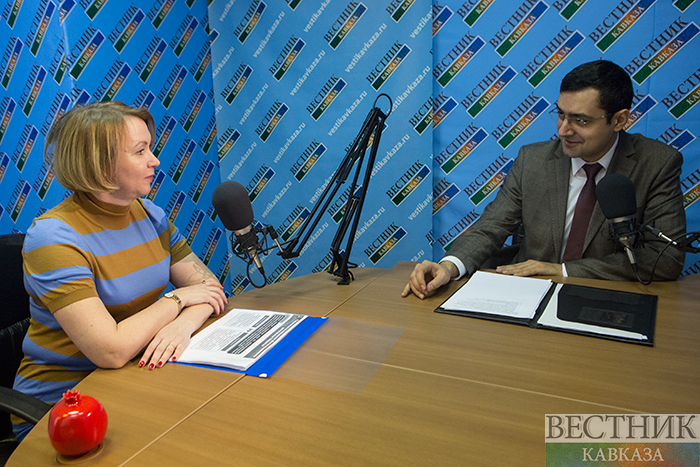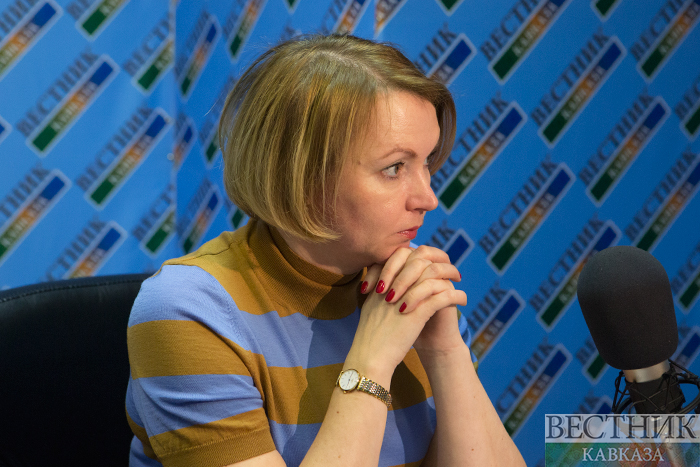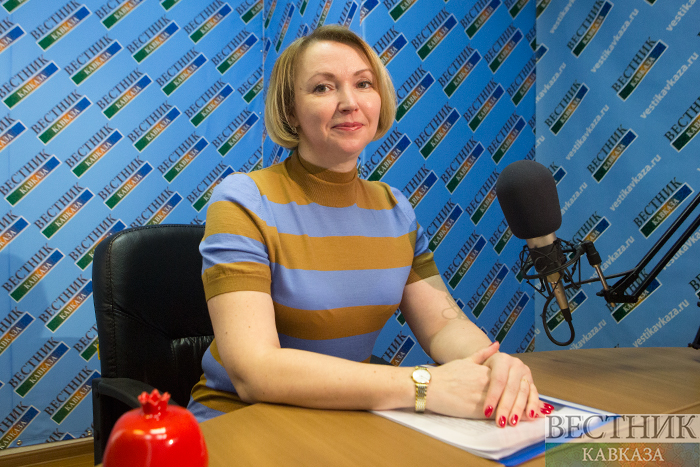Tribune’s guest is the Deputy Chairwoman of the Federation Council Committee on Agrifood Policy and Environmental Management, the senator from the Chelyabinsk region, Irina Hecht.
- Recently representatives the Chelyabinsk region had offered reallocating tax revenues from the sale of alcohol. Tell us more about this initiative, how did your colleagues react to it?
- Actually, we came to this idea as a result of those reorganizations that took place in the framework of Rosalkogolregulirovanie (Federal Service for Alcohol Market Regulation - VK), almost all of our factories were closed. And we lost quite substantial funds in the budget that came from excise taxes. But perhaps most painful was the closure of 'Baltika', which gave the budget more than 3 billion. That is, of course, it was a significant loss for the region. And when we began to analyze the situation, it turned out that, up to a certain time, allocation of excise taxes on alcohol and alcohol-containing products were in accordance with the consumption of our region, and it was fair. Basically, the same distribution operates today in relation to petroleum products.
And then the situation changed. And I think it was lobbied by certain companies. Today, taxes on all of this consumption are received by the regions where these products are manufactured. This is just 10 regions within the Russian Federation, which receive the lion's share from excise taxes, paid by the population. So we came up with this proposal, it would be fair to allocate taxes according to the amount of alcohol and alcohol-containing production sold in each region.
The implemented system of automated accounting allows us to track how much the sale of alcohol is in the territory of a particular region. Of course, we understand that it is quite a revolutionary proposal, it will cause dissatisfaction, mainly from those subjects that will lose these revenues. But, nevertheless, the majority of constituent parts of the Federation have supported us; it is about 46 constituent parts, which receive additional income through this redistribution.
- If a taxpayer in a particular region, for example, in the Tula region, buys an alcohol product, these deductions go to the budget of the Tula region, instead of the region that produced one alcohol product or another.
- Yes, but this is not a competition on who drinks more; this is money that is spent on the healthcare system, on the system of rehabilitation. The proposal should be introduced at the governmental level for further elaboration and discussion. It won't be in 2016, because the budget has already been formed. These changes will also lead to a redistribution of the transfers that will come from the federal budget. Nevertheless, it is actually a fairer system.

- Recently the Days of the Chelyabinsk Region successfully ended in the Federation Council, where much has been said about methods to preserve the environment. The Chelyabinsk region is one of the industrial locomotives of the Russian Federation, and in Chelyabinsk itself and near it, about 20 large enterprises are located. What was discussed?
- Primarily, we discussed agricultural and food producing policies. We decided that our industrial region can deal with agriculture, providing itself with various food products. Today we are the first in Russia in the production of pasta, second in the production of poultry meat and eggs. And there are many such leading positions in various groups of products. Of course, we had questions and suggestions to the Ministry of Agriculture. And still, the issue of ecology is crucial. The topic generates radiation phobias which are related to the consequences of the accident at the 'Mayak' Production Association. And this is due to the already accumulated environmental damage, which was formed in the region because of its industrial structure. In Chelyabinsk, in almost every area of the city, there is a large industrial enterprise which contributes to the pollution of the environment. The growth in the number of roads and cars makes the situation worse and leads to the fact that for the first time in many years there is smog over the city.
The Korkinsky coal mine has also contributed to the situation, where the strata started to burn. Its development is coming to an end, it is necessary to solve the problem of recultivation. We cannot do it on our own, neither the owners nor the region. Federal support is needed in order to deal with this enormous problem. This is the deepest pit in Europe. Its recultivation will require more than ten billion dollars.
The situation was worsened by the planned construction and development of copper ore fields, which are located 20 km from Chelyabinsk. The unfairness of public organizations, forcing social tensions, led to the fact that the population began to be indignant. And we put forward an initiative, so that similar large-scale projects passed complex environmental analysis, which would include all stages of production. From hammered peg to the final product, just as 'Rosatom' does in relation to all of its production. Legislation on ecological inspections suggests this possibility, but only in 2018. Of course, we are not satisfied with such a long interval, so we asked that the deadline be extended to 2017 for projects that belong to the first category, which are in close proximity to human settlements. Now these projects can pass environmental analysis in parts. For example, the Tomenskiy Mining and Processing Enterprise has environmental analyses on leaching, on tailings dumps. There cannot be any criticism. Conducting an appropriate competition, ordering a comprehensive environmental assessment, which will be ready by June of this year, we will have information on how it will affect the level of air pollution in the city itself.
The region has accumulated environmental damage, and it should be included in state programs in terms of the elimination of this damage. And, accordingly, there should be changes in the legislation concerning the passage of a comprehensive environmental assessment for such major projects that actually may cause damage to the environment.

- The Chelyabinsk region is known as one of the leaders in the Russian nuclear industry. In addition to electricity, strengthening the defense capacity, and many technologies, there is also nuclear medicine. Is the medical field being developed in the region?
- The Chelyabinsk region was probably the pioneer in the sphere of nuclear medicine, because the first positron emission tomography apparatus (PET), which uses the possibilities of nuclear developments, appeared on the basis of budgetary institutions. It appeared both in the Chelyabinsk region at the base of the Oncology Center, and in Magnitogorsk in the same institution. It was the first such equipment in budgetary organizations, before that they were only in private centers, but they were not used widely for the needs of state medicine. There are no more than 30 devices all over Russia. Two of them are in Chelyabinsk; a third will be opened together with Rosatom in the city of Snezhinsk on the basis of public-private partnership.
Positron emission tomography is to appear in Snezhinsk, which will allow not only residents of the Chelyabinsk region, but also Yekaterinburg and Kurgan to have additional examinations. There is a device in Snezhinsk, a so-called 'neutron tube'. Malignancies of certain localization are treated very effectively with the help of this device.
Unfortunately, we cannot certify this equipment, although its effectiveness is proven that it reduces the treatment period by 20-25%.The survival time in case of late diagnosis increases to 3-5 years if it is in a late stage, but it gives quite good results in cases of early detection. Tomsk doctors have the same results.
Certification of equipment in accordance with Russian legislation involves three devices that are in different hospitals and their impact is analyzed. But it should be understood that this equipment cannot be produced in large numbers, and accordingly, it has no analogues. We proposed amending the legislation and stipulating special conditions for the certification of such equipment related to nuclear technology. There is a completely different story, which cannot be related to common equipment.
Moreover, there is a company in Snezhinsk which produces radiopharmaceuticals. These drugs contain super-short living isotopes, which allow us to treat not only cancer, but also diagnose another neurological and diseases of a cardiac nature. In fact, this is the next period of medicine. And we are also faced with the problem of drug licensing. We want to create a center for neutron-proton therapy, as the region has a scientific base and production of radiopharmaceuticals. There are few such centers all over the world. These are unique technologies based on split cores that allow us to influence tumors of sufficiently deep localization without damaging organs or tissues.
These are unique technologies, and today we say that Chelyabinsk is ready to become such a center of nuclear medicine and start constructing an ion-proton therapy center together with Rosatom on the basis of public-private partnerships, as we have a roadmap for the creation of nuclear medicine in the country. In fact, it will be a unique institution. Vladimir Putin spoke in his address about high-tech medicine and that we need to extend its implementation by creating a federal component in order that more people could receive the opportunity of high-quality treatment. I think that nuclear medicine provides such possibilities in terms of diagnosis, as well as in terms of treatment.
Just to give you an example: we have two tomography scanners today; we can note that about 30,000 patients need this device. 5000 patients can be diagnosed with the help of two tomography scanners. Nevertheless, we still don't fully fulfill the population's need for this service. Therefore, we have asked the Federation Council to support the region in its intention to establish a nuclear medicine center, and, accordingly, to amend the legislation regarding the certification of equipment and the licensing of radiopharmaceuticals.
- Such equipment should be close to the top nuclear specialists in this field. There are a large number of scientific towns in the Chelyabinsk region, including closed ones. Certainly, it is very important that these health centers are created on the basis of major scientific associations, enterprises, and institutions.
- Yes, scientists must work nearby. For example, in Ozersk we train physicians precisely in the field of nuclear medicine. It is a position of principle when we have the necessary personnel, the basis and all the possibilities for the production of a whole range of isotopes. We supply them to European countries as a semi-finished product and receive them as medicine with a completely different price. However, we are able to provide all the necessary research and treatment.

- The next question to you as the deputy chairwoman of the Committee on Agrarian and Food Policy and Environmental Management – the issue of misuse of agricultural land. What can be done with it now?
- Today's legislation on land presumes that the land may be withdrawn if it is not used for its intended purpose for three years. Another two years were not taken into account, which were given for the introduction of the land in turnover. In addition, the law provides for such a loophole as the renewal of land to another legal entity or physical person, and the period started again. We have already proposed relevant amendments to the law regarding a reduction of the period to two years – a year for the introduction and a year for the beginning of the processing of this land without the possibility of its renewal. Unfortunately, we failed to pass the law through the State Duma, where the argument was raised that we would violate the rights of landowners. However, several members supported me.
We understood when and how these lands were bought; and how they are being used now – as a kind of investment component, or collateral in banks, but, nevertheless, a lot of lands are not being used now.
The President's Address to the Federal Assembly drastically changed the situation. He spoke in quite a tough way that today agriculture was showing dynamic growth against other industries, so it was necessary to completely provide themselves with domestic high-quality, environmentally friendly products until 2020. It requires the introduction of millions of hectares of arable land into circulation. For this purpose it is necessary to withdraw lands from those landowners who don't use them for their necessary purposes and to sell it at auction to those who are willing to cultivate and grow the relevant products. The order was to prepare appropriate amendments to the law before June 1st.2016. A working group was created today, and I think that within one month corresponding amendments will be prepared and submitted to the State Duma. I hope that about 40 million hectares, which aren't used today in agriculture, will be gradually returning to agricultural use.
- Will we feel it in stores?
- I think we will. We can say with pride that wheat has become an export product again. Certainly, the possibility of extending areas allows manufacturers to extend and sell wheat abroad, as well as to receive the relevant products.






